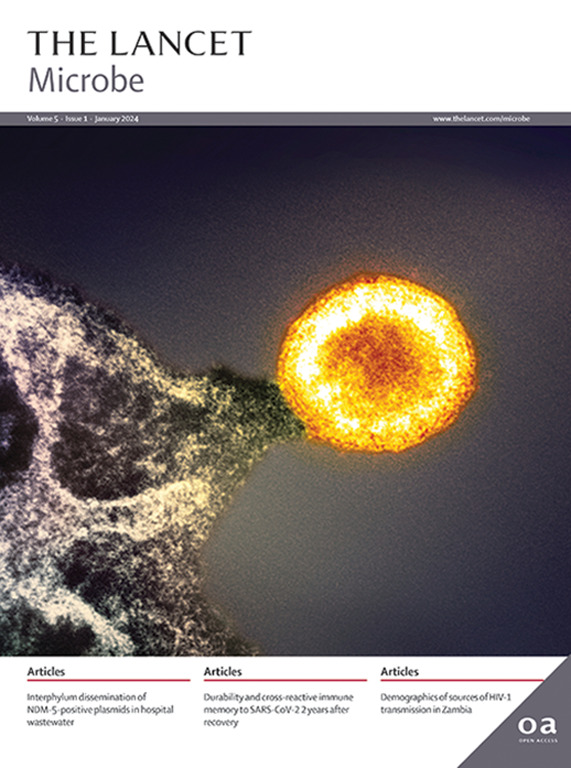抗菌药耐药性:简要更新。
IF 20.9
1区 生物学
Q1 INFECTIOUS DISEASES
引用次数: 0
摘要
抗菌药物耐药性(AMR)是对全球公共卫生的严重威胁,2019 年约有 500 万人死于细菌性 AMR。应对 AMR 需要采取多方面的综合方法,包括加强对个体和人群层面的机制和驱动因素的了解、AMR 监测、抗菌药物管理、改进感染预防和控制措施、加强全球政策和资金投入,以及开发新型抗菌药物治疗策略。在这一快速发展的领域,本综述简要介绍了 AMR 的最新情况,包括流行病学、演变、潜在机制(主要是与末线或新一代抗生素相关的机制)、感染预防和控制措施、抗生素的获取、抗菌药物管理、AMR 监测以及新兴的非抗生素治疗方法。该综述还讨论了人工智能在应对 AMR 方面的潜在作用,包括抗菌药物药敏试验、AMR 监测、抗菌药物管理、诊断以及抗菌药物的发现和开发。本综述强调了应对 AMR 的全球影响以及在这一动态领域快速发展相关技术的迫切需要。本文章由计算机程序翻译,如有差异,请以英文原文为准。
Antimicrobial resistance: a concise update
Antimicrobial resistance (AMR) is a serious threat to global public health, with approximately 5 million deaths associated with bacterial AMR in 2019. Tackling AMR requires a multifaceted and cohesive approach that ranges from increased understanding of mechanisms and drivers at the individual and population levels, AMR surveillance, antimicrobial stewardship, improved infection prevention and control measures, and strengthened global policies and funding to development of novel antimicrobial therapeutic strategies. In this rapidly advancing field, this Review provides a concise update on AMR, encompassing epidemiology, evolution, underlying mechanisms (primarily those related to last-line or newer generation of antibiotics), infection prevention and control measures, access to antibiotics, antimicrobial stewardship, AMR surveillance, and emerging non-antibiotic therapeutic approaches. The Review also discusses the potential roles of artificial intelligence in addressing AMR, including antimicrobial susceptibility testing, AMR surveillance, antimicrobial stewardship, diagnosis, and antimicrobial drug discovery and development. This Review highlights the urgent need for addressing the global effects of AMR and for rapid advancement of relevant technology in this dynamic field.
求助全文
通过发布文献求助,成功后即可免费获取论文全文。
去求助
来源期刊

Lancet Microbe
Multiple-
CiteScore
27.20
自引率
0.80%
发文量
278
审稿时长
6 weeks
期刊介绍:
The Lancet Microbe is a gold open access journal committed to publishing content relevant to clinical microbiologists worldwide, with a focus on studies that advance clinical understanding, challenge the status quo, and advocate change in health policy.
 求助内容:
求助内容: 应助结果提醒方式:
应助结果提醒方式:


